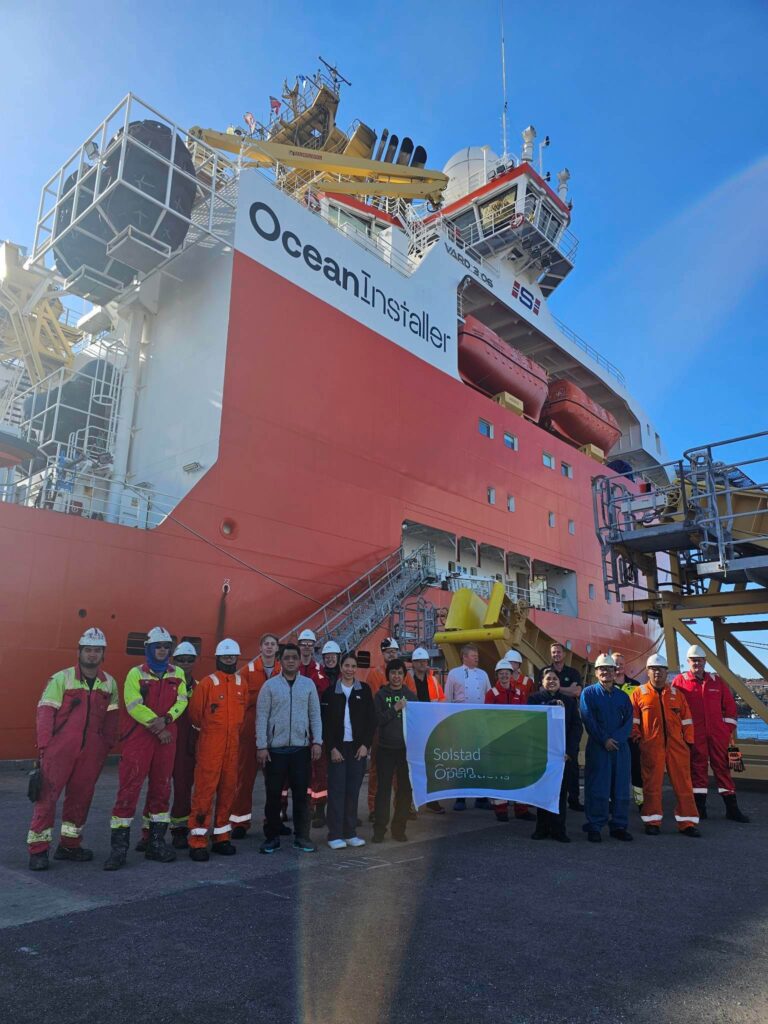
26.04.2023
Normand Vision saves 150 tons of fuel on long transit
One of our largest construction vessels, Normand Vision, managed to save considerable amounts of fuel and reduce emission on her way home from a project in West Africa.
Through excellent cooperation with our long-term key client Ocean Installer, good planning and pro-active crew and onshore management the ship managed to save 150 tons of fuel on this transit alone.
150 tons of fuel has the approximately costs of 1.5 MNOK and equals about 480 tons of CO2, same as the annual emissions from 200 fossil passenger cars.

By taking weather and sea conditions into consideration, the team were able to find an optimal average speed of 9.7 knots for the 5000 nautical mile route, with the speed being as low as 8 knots at some parts of the transit. An estimated saving of 25% was obtained compared to what was originally planned and what is industry standard for this kind of operations.
Solstad introduced ‘Solstad Green Operations’ back in 2010 focusing on simple operational measures that the crew often in close cooperation with the client can do on a daily basis to reduce emissions. For 2023 Solstad is focusing on the use of slow steaming whenever possible, specially on long transits to and from West-Africa, America and Asia/Australia.
The most efficient speed for offshore vessels is normally well below 10-12 knots. By combining the optimal hull speed with running the least number of generators, the lowest consumption in liters per nautical mile can be found.
Sometimes we can experience some challenges in combining projects and operations with slow steaming but surprisingly often we see that this can be done without significant deviation in the operational plans and, at the same time, give considerable emission savings.
Tor Inge Dale, Chief Sustainability Officer